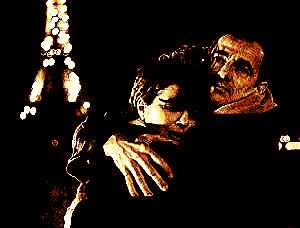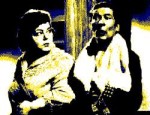Film Review
Whilst her work as a director hasn't yet earned her the acclaim that
her screenwriting has, Danièle Thompson certainly knows how to
make films that have a wide popular appeal.
Fauteuils d'orchestre has many of
the ingredients that will draw enthusiasts of French cinema - its
Parisian setting, its themes of love and personal crises, its high
calibre cast and its subtle blend of comedy and drama. The film
evokes fond memories of Thompson's directorial debut film,
La
Bûche (1999), which many regard as her best work to
date.
Fauteuils d'orchestre is an
engaging film which has many good points - Cécile De France and
Valérie Lemercier being at least two of them - but it isn't
entirely without its failings. The characters - although
well-played - are for the most part unconvincing caricatures, and
are not given the time or the space to develop. The situations are
often clichéd and this, together with the unadventurous cinematography and direction,
makes the film feel somewhat dated.
Perhaps the biggest failing with this film is that there are just
too many story elements, too many ideas that have been thrown together,
like vegetables in a food blender,
without any regard to structure or narrative
thrust. At the end you are left wondering what the point of the
film was and whether any one of its umpteen story strands has been
resolved. If
Fauteuils d'orchestre were a
dessert it would be something light
and fluffy made with a lot of tasty ingredients,
one that you would take great pleasure in eating,
but one that would leave
you hungry and unsatisfied once the plate was empty.
© James Travers 2008
The above content is owned by frenchfilms.org and must not be copied.
Next Danièle Thompson film:
Le Code a changé (2009)
Film Synopsis
Prompted by her grandmother's recollections, Jessica goes to Paris and
finds work as a waitress in a bar frequented by actors and theatre
goers. She meets three people who could not be more different but
who are all looking for a new direction in their lives.
Jean-François Lefort is a virtuoso pianist who burns with a
newly acquired passion to bring classical music to people who are
excluded from the concert halls. Fred Grumberg is thrown into
a mid-life crisis when he learns that his father, Jacques, is about to
sell off his art collection so that he can start a new life with a much
younger woman. Catherine Versen is a successful actress who
has become a star thanks to a popular television series, but she is
desperate to take on more challenging work, on stage and in
films. As luck would have it, the lives of these three people
reach a turning point on the same date...
© James Travers
The above content is owned by frenchfilms.org and must not be copied.



